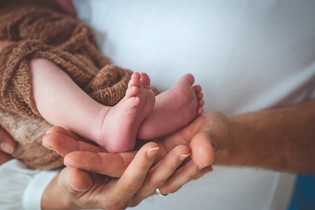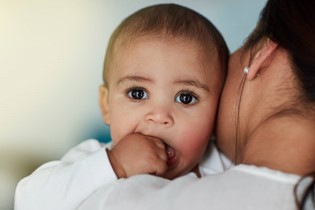How does my age impact my fertility

What is the optimal age to get pregnant? With the average age of New Zealand women having a child now at an all-time high of 30, it seems obvious that with the age of first parenthood increasing, women's fertility is decreasing. Fertility specialist Dr Richard Fisher looks at the research surrounding how age impacts on fertility, for both men and women.
Social change is always fascinating. Changes in the way we behave often lead to unintended consequences. One of the most significant adverse consequences arising from the change to older parenthood (long held to be consequentially "good for society") is that the incidence of subfertility is increasing for many couples. For many, conception is easy; but for an increasing number, it is becoming more difficult. This is not because there is a fundamental change in human ability to reproduce, it is simply a side effect of beginning one's reproductive life later than in the past.
The average age of first birth in New Zealand has climbed steadily since the 1970s. The situation now in 2008 is that it has reached 28. The average age of all New Zealand women giving birth is around 30 years. Clearly this is only an average, but what it does mean is that a significant number of people are trying to have their first baby later than they used to.
Human fecundity (the chance of conception per month) changes quite dramatically over time, with good evidence that it begins to decline in the late 20s and it falls more rapidly from the mid-30s. At age 30, the average chance of conception per month is around 20%, and by age 35, it has fallen to around 17% or 18%. By 40 it is down to 10% per month. At 43, most women have only around a 4% to 5% chance of conceiving each month.
Fecundity is a biological variable, and involves two people rather than one, but the primary determinant is usually the woman's age. That some women do conceive at 43 is certainly true, but also means that a significant number will not conceive, through no fault of their own, and with no underlying cause other than chance.
As women age, the likelihood of the egg that is released each month being normal decreases, and by age 40, around 85% to 90% of eggs are chromosomally abnormal.

At a time when couples would most like to conceive quickly, nature determines that conception will, more likely than not, occur slowly. To compound this, the incidence of miscarriage and later fetal loss increases as age increases. The risk of miscarriage increases from around 10-15% at age 30 to 35-40% at 40.
We have known for many years that there is an increase inchromosomal abnormalities in the children of reproductively older women, but recently, more interest has been shown in men's age as an independent variable in reproductive outcomes. Lately there has been some publicity about the chance of fetal death increasing as male age increases, but this just confirms data known for some time that a paternal age of greater than 50 doubles the chance of fetal death at any time in pregnancy, and paternal age of more than 40 leads to an increased rate of miscarriage independent of maternal age.
More recent data has shown that as men age, the chance of their partner conceiving reduces as well, and a man older than 40 may halve the chances per month of his partner conceiving. Young sperm seems to have a significant biological advantage, just as young eggs do.
Just as in women, paternal age can affect children's outcome, although more recognised in non-chromosome abnormalities such as schizophrenia, autism, and achondroplasia (dwarfism). The data about schizophrenia seems particularly robust, with the chance of a 45-year-old male having a child with schizophrenia being three times greater than one under 30. Similarly, as men age there is an increased risk of the child having autism.
These are all relative risks, however, and the absolute levels remain small. Men, however, clearly shoulder some of the burden of risk factors with the changing reproductive age.
I am often surprised how many couples are unaware of the significant effect of female age on reproduction. Despite 20 years of my constantly talking about maternal age and its effect on fertility, the information is still not widely disseminated, or, if it is, not widely absorbed. Most people are brought up to think about "when" they have children, rather than "if", and hold firmly to the belief that such an "if" could not happen to them.
As always, there are competing messages in the media, which make an assessment of likelihood difficult. News that yet another celebrity has conceived in their 40s (and often with twins) often lacks added information that their conception was assisted, and often with the use of donor eggs. Hollywood must have the highest incidence of spontaneous twin pregnancies in the world!
A consequence of this delay in attempting to conceive is that more people present to infertility clinics for assistance than ever before. Often there is no definable cause other than age, and with luck, time alone will allow conception to occur. The average normal 37-year-old will take around seven to eight months to conceive, and the average 40-year-old will take up to 15 months.
Clearly the underlying emotional pressures of such delays are significant. The insecurity about conception leads to interventions such as the use of drugs and even IVF, which,if more time was available, might prove unnecessary.
Since 1990, there has been a four-fold increase in the use of IVF in women over 40. Approximately 20% of all couples having IVF at Fertility Associates Auckland are now over the age of 40. There is little question IVF is the most effective treatment in any individual month for these couples, although it is a complex treatment, which most couples would rather have avoided.
Just as in natural conception, the success rates in IVF are also limited by the underlying biology. IVF is a highly successful treatment in younger women and a relatively effective one in older women, but the incidence of failure increases with age.
It has been widely stated (without any factual basis) that the reasons for delaying conception were primarily around women deciding to become educationally, professionally and financially more secure, quite apart from the independence that the emancipation of women has brought. Two recent surveys, however, in Australia and New Zealand, both of infertile couples, strongly suggest that the lack of a suitable partner may well be the prime determinant. Whether women are getting more fussy, men are becoming less ready to commit, or whether there are just are not enough suitable men to go around, it is a fertile topic for further research.
Reproductive medicine can do clever things, but if what we have is a social problem, then we would be better off seeking a social solution. No amount of good medicine, combined with good research, is likely to make a significant difference to the number of people presenting for fertility treatment who are successful, whereas trying to conceive earlier certainly would.
A further, and just as interesting, social consequence of delay in childbearing may take another generation to become obvious.
In most societies, grandparents have played an active role in the upbringing of their grandchildren. In the last two decades, with more women at work, that involvement has often become more consistent as a source of childcare during the working week, and respite care at other times. Even families separated by distance have some more consistent involvement than in the past.
If the current patterns continue, then it will be very common for grandparents to become first grandparents in their sixties and seventies, at a time when active grandparenthood might be more difficult both emotionally and physically. For an increasing number of grandparents, the likelihood of great-grandparenthood will be remote.
For most couples, conception should occur without too much difficulty. Intercourse should not need to be planned like a military exercise, but having an awareness of the time of ovulation is important and having an awareness of the importance of age is critical. If there is anything in your, or your partner's, history which is suggestive of a reduction in your chances of conception,such as pelvic infection, endometriosis, or surgery to the testis, then you should present early for assessment. The more irregular your cycles, the less predictable the time of ovulation is.
With social changes come unintended consequences. How we deal with these particular consequences will shape the future for both individuals and society as a whole.
Richard Fisher FRCOG, FRANZCOG, CREI together with Freddy Graham established Fertility Associates in 1987 after starting up New Zealand's integrated infertility medicine group at National Women's previously. He is New Zealand's foremost medical spokesperson on matters of reproductive health and has been an advocate for better access to care for couples with infertility throughout his career. He has four children and is married to Leigh, without whom he could never have practised medicine with the enthusiasm and commitment that he has. www.fertilityassociates.co.nz will tell you more about Richard and the team at Fertility Associates.

AS FEATURED IN ISSUE 3 OF OHbaby! MAGAZINE. CHECK OUT OTHER ARTICLES IN THIS ISSUE BELOW

















